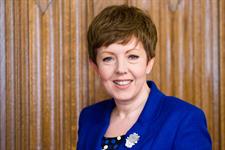It is “plain wrong” to suggest that the Charity Commission‘s emphasis on the lack of public trust in charities is undermining the voluntary sector, its chair has said.
In a written question-and-answer statement to the Digital, Culture, Media & Sport Select Committee as part of its inquiry into the work of the commission, Baroness Tina Stowell rejected the idea that the commission’s language around public trust was contributing to the problem.
The correspondence between Stowell and Julian Knight, the Conservative MP for Solihull, who chairs the committee, was published this week in place of a planned oral session, which has been cancelled as a result of coronavirus restrictions.
The committee stated that some in the sector were concerned that “language that emphasises a crisis in public trust in charities risks reinforcing that problem rather than solving it” and asked whether the commission was striking the right balance in how it talks about the public and charities.
In response, Stowell wrote: “The suggestion that by understanding and speaking to public expectation we are undermining the reputation of charities is plain wrong.”
She pointed to studies published by the commission and the Charities Aid Foundation that showed public trust in charities had fallen in recent years. She argued that it was the commission’s responsibility to demonstrate that it understood the public’s concerns and this in turn would help to reassure the public.
She said the commission’s latest survey of public trust, due to be published “shortly”, indicated a small increase in trust, although it remained lower than it was in 2014.
“The suggestion that our approach is damaging public trust is not borne out by evidence,” Stowell said.
The correspondence also revealed that the commission had reduced the backlog of work that had not yet been allocated to staff members or teams by 80 per cent between January 2019 and 31 March this year.
The DCMS committee noted that the commission’s annual report for 2018/19 said it had been the commission’s busiest year and asked whether it felt it had the resources to deal with increased demand for its services.
In her response, Stowell said: “Even though volumes of incoming casework have continued to grow, during 2019/20 we have reduced historic backlogs, improved systems and processes, and introduced changes to ensure continuous improvement.”
She said the commission had also dealt with a record number of 9,391 registration applications, up by 25 per cent on the previous year, and supported an extra 6,000 charities by answering 12,000 extra calls to its contact centre.
In 2015, the commission’s budget was frozen at £20.3m a year until 2020, but in April 2018 it was allocated an additional £5m for the year, which Stowell said enabled it to recruit 85 new staff.
Stowell said the pace of the commission’s progress in delivering its five-year plan in full was “dependent on resource”.
She said: “We do not currently have the resources necessary to fulfil all of our ambitions, but that cannot be an excuse for us not making progress.
“We will continue to engage with HM Treasury in advance of this year’s spending review, whilst being conscious of the extraordinary circumstances the nation currently faces and the impact that this may have on public spending in the future.”
